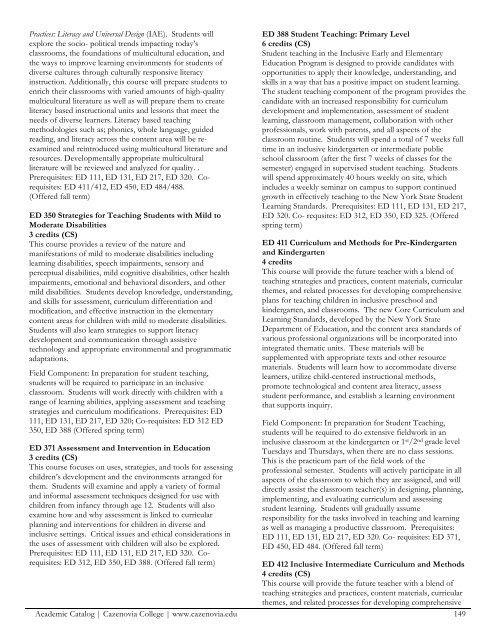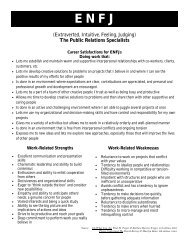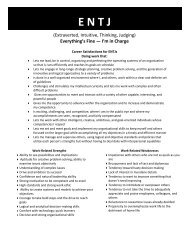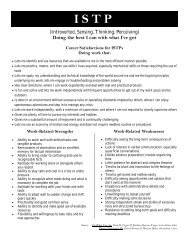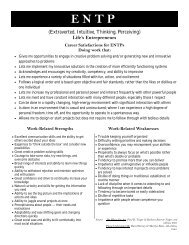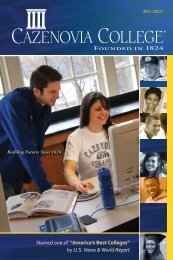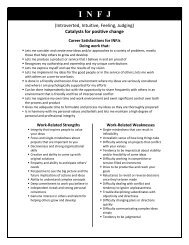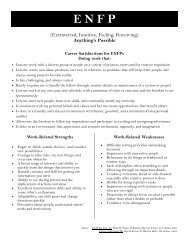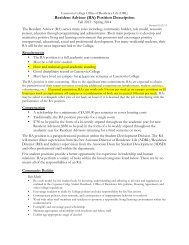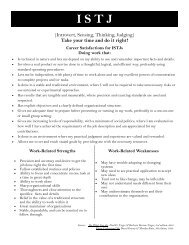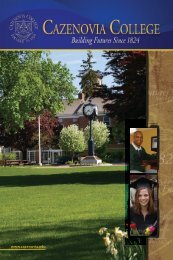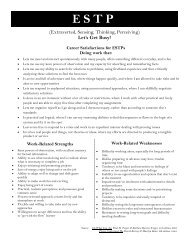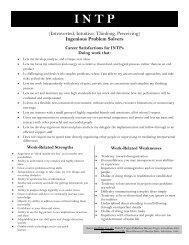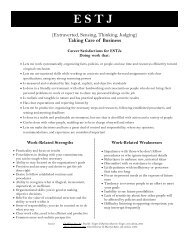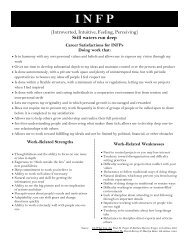of
2013-14 Academic Catalog - Cazenovia College
2013-14 Academic Catalog - Cazenovia College
- No tags were found...
You also want an ePaper? Increase the reach of your titles
YUMPU automatically turns print PDFs into web optimized ePapers that Google loves.
Practices: Literacy and Universal Design (IAE). Students will<br />
explore the socio- political trends impacting today’s<br />
classrooms, the foundations <strong>of</strong> multicultural education, and<br />
the ways to improve learning environments for students <strong>of</strong><br />
diverse cultures through culturally responsive literacy<br />
instruction. Additionally, this course will prepare students to<br />
enrich their classrooms with varied amounts <strong>of</strong> high-quality<br />
multicultural literature as well as will prepare them to create<br />
literacy based instructional units and lessons that meet the<br />
needs <strong>of</strong> diverse learners. Literacy based teaching<br />
methodologies such as; phonics, whole language, guided<br />
reading, and literacy across the content area will be reexamined<br />
and reintroduced using multicultural literature and<br />
resources. Developmentally appropriate multicultural<br />
literature will be reviewed and analyzed for quality. .<br />
Prerequisites: ED 111, ED 131, ED 217, ED 320. Corequisites:<br />
ED 411/412, ED 450, ED 484/488.<br />
(Offered fall term)<br />
ED 350 Strategies for Teaching Students with Mild to<br />
Moderate Disabilities<br />
3 credits (CS)<br />
This course provides a review <strong>of</strong> the nature and<br />
manifestations <strong>of</strong> mild to moderate disabilities including<br />
learning disabilities, speech impairments, sensory and<br />
perceptual disabilities, mild cognitive disabilities, other health<br />
impairments, emotional and behavioral disorders, and other<br />
mild disabilities. Students develop knowledge, understanding,<br />
and skills for assessment, curriculum differentiation and<br />
modification, and effective instruction in the elementary<br />
content areas for children with mild to moderate disabilities.<br />
Students will also learn strategies to support literacy<br />
development and communication through assistive<br />
technology and appropriate environmental and programmatic<br />
adaptations.<br />
Field Component: In preparation for student teaching,<br />
students will be required to participate in an inclusive<br />
classroom. Students will work directly with children with a<br />
range <strong>of</strong> learning abilities, applying assessment and teaching<br />
strategies and curriculum modifications. Prerequisites: ED<br />
111, ED 131, ED 217, ED 320; Co-requisites: ED 312 ED<br />
350, ED 388 (Offered spring term)<br />
ED 371 Assessment and Intervention in Education<br />
3 credits (CS)<br />
This course focuses on uses, strategies, and tools for assessing<br />
children’s development and the environments arranged for<br />
them. Students will examine and apply a variety <strong>of</strong> formal<br />
and informal assessment techniques designed for use with<br />
children from infancy through age 12. Students will also<br />
examine how and why assessment is linked to curricular<br />
planning and interventions for children in diverse and<br />
inclusive settings. Critical issues and ethical considerations in<br />
the uses <strong>of</strong> assessment with children will also be explored.<br />
Prerequisites: ED 111, ED 131, ED 217, ED 320. Corequisites:<br />
ED 312, ED 350, ED 388. (Offered fall term)<br />
ED 388 Student Teaching: Primary Level<br />
6 credits (CS)<br />
Student teaching in the Inclusive Early and Elementary<br />
Education Program is designed to provide candidates with<br />
opportunities to apply their knowledge, understanding, and<br />
skills in a way that has a positive impact on student learning.<br />
The student teaching component <strong>of</strong> the program provides the<br />
candidate with an increased responsibility for curriculum<br />
development and implementation, assessment <strong>of</strong> student<br />
learning, classroom management, collaboration with other<br />
pr<strong>of</strong>essionals, work with parents, and all aspects <strong>of</strong> the<br />
classroom routine. Students will spend a total <strong>of</strong> 7 weeks full<br />
time in an inclusive kindergarten or intermediate public<br />
school classroom (after the first 7 weeks <strong>of</strong> classes for the<br />
semester) engaged in supervised student teaching. Students<br />
will spend approximately 40 hours weekly on site, which<br />
includes a weekly seminar on campus to support continued<br />
growth in effectively teaching to the New York State Student<br />
Learning Standards. Prerequisites: ED 111, ED 131, ED 217,<br />
ED 320. Co- requsites: ED 312, ED 350, ED 325. (Offered<br />
spring term)<br />
ED 411 Curriculum and Methods for Pre-Kindergarten<br />
and Kindergarten<br />
4 credits<br />
This course will provide the future teacher with a blend <strong>of</strong><br />
teaching strategies and practices, content materials, curricular<br />
themes, and related processes for developing comprehensive<br />
plans for teaching children in inclusive preschool and<br />
kindergarten, and classrooms. The new Core Curriculum and<br />
Learning Standards, developed by the New York State<br />
Department <strong>of</strong> Education, and the content area standards <strong>of</strong><br />
various pr<strong>of</strong>essional organizations will be incorporated into<br />
integrated thematic units. These materials will be<br />
supplemented with appropriate texts and other resource<br />
materials. Students will learn how to accommodate diverse<br />
learners, utilize child-centered instructional methods,<br />
promote technological and content area literacy, assess<br />
student performance, and establish a learning environment<br />
that supports inquiry.<br />
Field Component: In preparation for Student Teaching,<br />
students will be required to do extensive fieldwork in an<br />
inclusive classroom at the kindergarten or 1 st /2 nd grade level<br />
Tuesdays and Thursdays, when there are no class sessions.<br />
This is the practicum part <strong>of</strong> the field work <strong>of</strong> the<br />
pr<strong>of</strong>essional semester. Students will actively participate in all<br />
aspects <strong>of</strong> the classroom to which they are assigned, and will<br />
directly assist the classroom teacher(s) in designing, planning,<br />
implementing, and evaluating curriculum and assessing<br />
student learning. Students will gradually assume<br />
responsibility for the tasks involved in teaching and learning<br />
as well as managing a productive classroom. Prerequisites:<br />
ED 111, ED 131, ED 217, ED 320. Co- requisites: ED 371,<br />
ED 450, ED 484. (Offered fall term)<br />
ED 412 Inclusive Intermediate Curriculum and Methods<br />
4 credits (CS)<br />
This course will provide the future teacher with a blend <strong>of</strong><br />
teaching strategies and practices, content materials, curricular<br />
themes, and related processes for developing comprehensive<br />
Academic Catalog | Cazenovia College | www.cazenovia.edu 149


